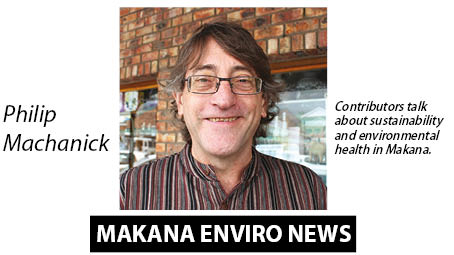Rhodes University lecturer, Professor Philip Machanick, will share his knowledge about fossil fuel use and Green politics at #BreakFreeGHT this Friday. The public discussion will take place from 3pm at the Africa Media Matrix on Prince Alfred Street. The event serves as a way to discuss environmental issues and fossil fuel use around the globe and in Grahamstown.
Machanick shared some of his insight on ‘Green politics’ with Grocott’s Mail.
“I will give some background on the development of Green politics in Australia, which has the oldest Green party in the world, with origins in the United Tasmania Group (UTG) in 1972.
“There is a misconception that Green is a middle-class concern,” Machanick said. “There are many environmental movements around the world based in poor communities. The Amadiba Crisis Committee (ACC) was started by villagers in 2007 in Xolobeni in Pondoland to fight mining titanium in their area.
“Wangari Maathai in Kenya was a renowned environmentalist who won a Nobel Peace Prize.”
Green politics is not about tree hugging: it is about equity and sustainability, Machanick says. The international Green movement rests on the four pillars of ecological sustainability, peace and non-violence, social justice and grassroots democracy.
“One of the things that attracted me to Green politics was that it is increasingly evidence-based, which appeals to me as a scientist. It is also relatively free of the corruption of party funding: it is inherently not attractive to big business to fund. The Australian Greens maintain an ethical donations policy and do not take money that could cause conflicts with their goals.”
Machanick cited when Enrique Peñalosa became mayor of Bogotá in 1998 and put his focus on people-friendly policies that maximised equity.
“He ended up with great cycling and pedestrian infrastructure and good inexpensive public transport.”
Here?
“One of the things I would like to see change is making it easier to put solar power on your home. Using solar power with batteries is expensive; adding solar power to a grid-connected home does not work well if your main usage is at night time. I will look at some ways this could change.”


